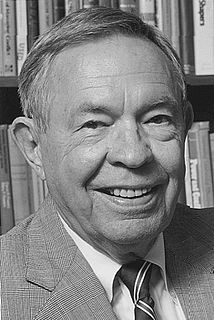A Quote by Samuel Johnson
To scatter praise or blame without regard to justice is to destroy the distinction of good and evil. Many have no other test of actions than general opinion; and all are so far influenced by a sense of reputation that they are often restrained by fear of reproach, and excited by hope of honour, when other principles have lost their power.
Related Quotes
True honour is an attachment to honest and beneficent principles, and a good reputation; and prompts a man to do good to others, and indeed to all men, at his own cost, pains, or peril. False honour is a pretence to this character, but does things that destroy it: And the abuse of honour is called honour, by those who from that good word borrow credit to act basely, rashly, or foolishly.
A vice sanctioned by the general opinion is merely a vice. The evil terminates in itself. A vice condemned by the general opinion produces a pernicious effect on the whole character. The former is a local malady; the latter, constitutional taint. When the reputation of the offender is lost, he too often flings the remainder of his virtue after it in despair.
My Soul gave me good counsel, teaching me never to delight in praise or to be distressed by reproach. Before my Soul taught me, I doubted the value of my accomplishments until the passing days sent someone who would extol or disparage them. But now I know that trees blossom in the spring and give their fruits in the summer without any desire for accolades. And they scatter their leaves abroad in the fall and denude themselves in the winter without fear of reproof.
Those who hope for purity and righteousness always try and destroy that which disturbs them. They think the disturbance comes from outside themselves. This is a serious problem. Wars, suicide bombings, and all sorts of other nasty things start from the premise that we can destroy 'evil' outside ourselves without dealing with the evil within.
The grand obstacle to the salvation of the scribes and Pharisees was their pride, vanity and self-love. They lived on each other's praise. If they had acknowledged Christ as the only good teacher, they must have given up the good opinion of the multitude; and they chose rather to lose their souls than to forfeit their reputation among men!
For there is no virtue, the honour and credit for which procures a man more odium from the elite than that of justice; and this, because more than any other, it acquires a man power and authority among the common people. For they only honour the valiant and admire the wise, while in addition they also love just men, and put entire trust and confidence in them.
I fear the popular notion of success stands in direct opposition in all points to the real and wholesome success. One adores public opinion, the other, private opinion; one, fame, the other, desert; one, feats, the other, humility; one, lucre, the other, love; one, monopoly, and the other, hospitality of mind.
The human mind is generally far more eager to praise and dispraise than to describe and define. It wants to make every distinction a distinction of value; hence those fatal critics who can never point out the differing quality of two poets without putting them in an order of preference as if they were candidates for a prize.
Science and technology have freed humanity from many burdens and given us this new perspective and great power. This power can be used for the good of all. If wisdom governs our actions; but if the world is mad or foolish, it can destroy itself just when great advances and triumphs are almost without its grasp.
That nations that have gone for equality, like Communism, have neither freedom nor justice nor equality, they've the greatest inequalities of all, the privileges of the politicians are far greater compared with the ordinary folk than in any other country. The nations that have gone for freedom, justice and independence of people have still freedom and justice, and they have far more equality between their people, far more respect for each individual than the other nations. Go my way. You will get freedom and justice and much less difference between people than you do in the Soviet Union.




































